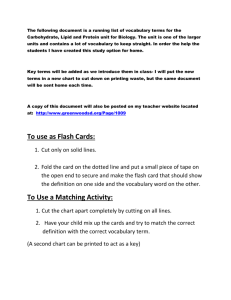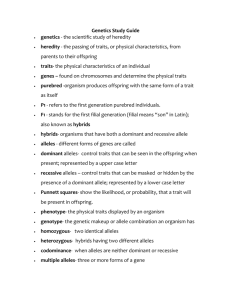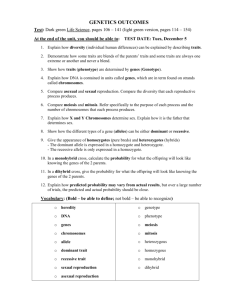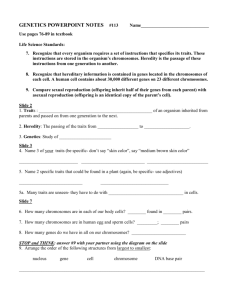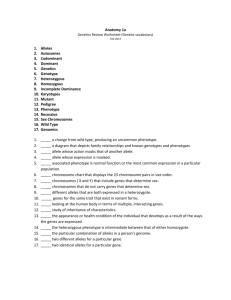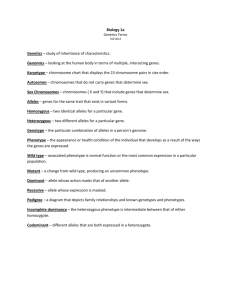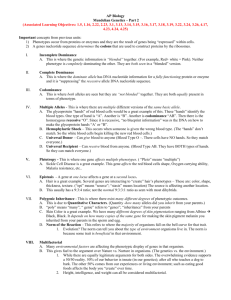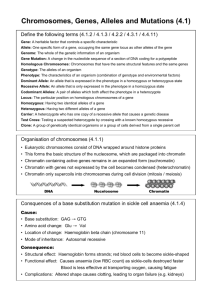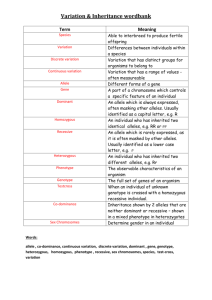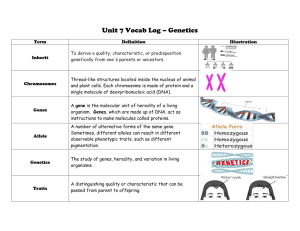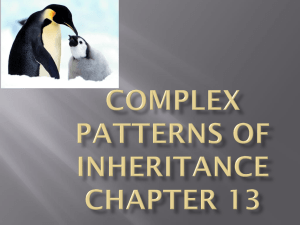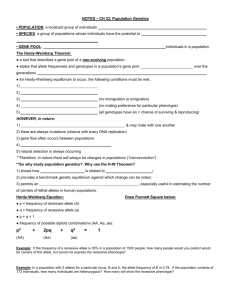26. During interphase each chromosome replicates to two
advertisement
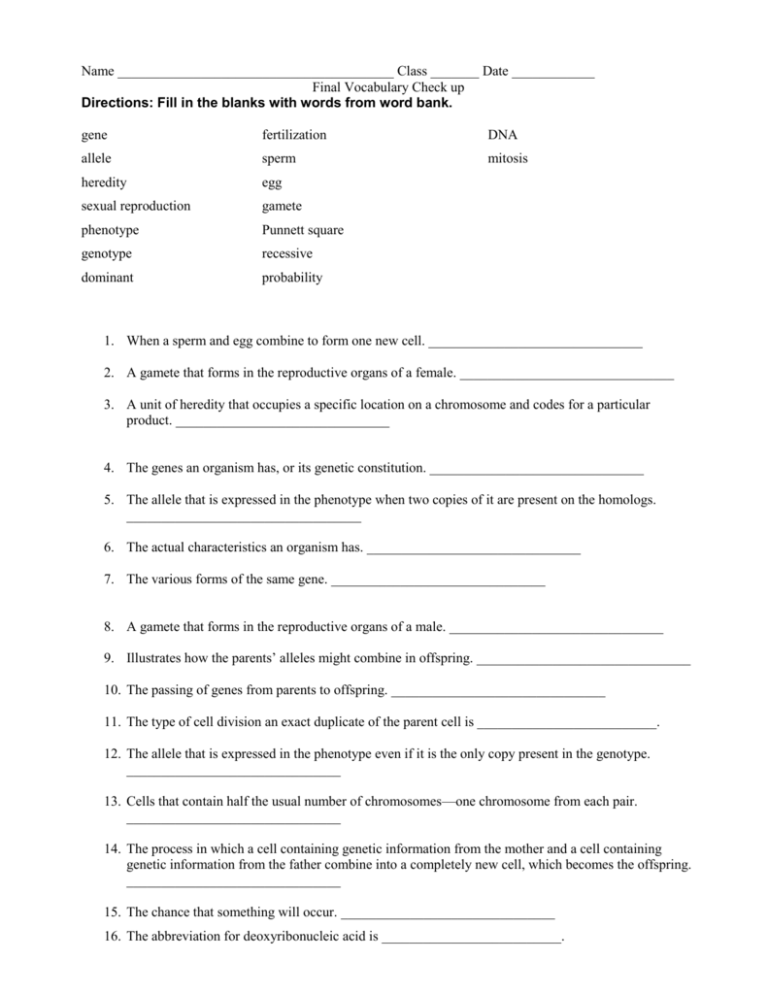
Name ________________________________________ Class _______ Date ____________ Final Vocabulary Check up Directions: Fill in the blanks with words from word bank. gene fertilization DNA allele sperm mitosis heredity egg sexual reproduction gamete phenotype Punnett square genotype recessive dominant probability 1. When a sperm and egg combine to form one new cell. _______________________________ 2. A gamete that forms in the reproductive organs of a female. _______________________________ 3. A unit of heredity that occupies a specific location on a chromosome and codes for a particular product. _______________________________ 4. The genes an organism has, or its genetic constitution. _______________________________ 5. The allele that is expressed in the phenotype when two copies of it are present on the homologs. __________________________________ 6. The actual characteristics an organism has. _______________________________ 7. The various forms of the same gene. _______________________________ 8. A gamete that forms in the reproductive organs of a male. _______________________________ 9. Illustrates how the parents’ alleles might combine in offspring. _______________________________ 10. The passing of genes from parents to offspring. _______________________________ 11. The type of cell division an exact duplicate of the parent cell is __________________________. 12. The allele that is expressed in the phenotype even if it is the only copy present in the genotype. _______________________________ 13. Cells that contain half the usual number of chromosomes—one chromosome from each pair. _______________________________ 14. The process in which a cell containing genetic information from the mother and a cell containing genetic information from the father combine into a completely new cell, which becomes the offspring. _______________________________ 15. The chance that something will occur. _______________________________ 16. The abbreviation for deoxyribonucleic acid is __________________________. heterozygous DNA sexual reproduction Punnett square chromatids one-half homozygous chromosomes cell cycle parent meiosis cell recessive gene genetics clone traits mutation chromosomes nucleus 17. _____________________ are physical characteristics of an organism that are passed down from one generation to the next. 18. ___________________________ are rod-shaped structures found in the nucleus of every cell in an organism. 19. _________________________________________ is a chart used to show the possible gene combinations in across between two organisms 20. A ________________________________________ allele pair that consists of a dominant allele and a recessive allele. 21. A _______________________________________ trait seems to disappear when two different alleles for the same trait are present. 22. Organisms inherit genes in pairs, one from each _____________________________. 23. _________________________________ is the study of heredity. 24. Interphase, mitosis and cytokinesis are stages of the __________________________ 25. What is the information molecule? __________________________ 26. During interphase each chromosome replicates to two __________________________ 27. What is the segment of DNA controlling one of our traits? __________________________ 28. What is an exact genetic copy? __________________________ 29. During prophase, the DNA condenses into these? __________________________ 31. The fraction of chromosomes a sperm or egg has? __________________________ 32. The organelle that houses the genetic material? __________________________ 33. The smallest unit able to perform the basic functions of life __________________________ 34. Any change made to the DNA molecule? __________________________ 35. If the two alleles for a gene, are both dominant or both recessive, we say they are __________________________. 36. During fertilization, chromosomes with similar genes pair up. These pairs are called _______________________________________________. 37. The type of cell division that produces a sperm or an egg. ________________________ alleles phenotype genes gametes B. WHAT IS THIS? Write the vocabulary word on the line that best fi ts each description. 39. Each parent has two of these for a particular gene. ________________ 40. These are found only in the reproductive organs of plants and animals. ________________ 41. You inherit these from your parents, and these code for the traits you have. ________________ 42. Your height and the size of your feet are observable traits and part of this. ________________ B. WHAT IS THIS? Write the vocabulary word on the line that best fi ts each description. 43. Each parent has two of these for a particular gene. ________________ 44. These are found only in the reproductive organs of plants and animals. ________________ 45. You inherit these from your parents, and these code for the traits you have. ________________ 46. Your height and the size of your feet are observable traits and part of this. ________________
